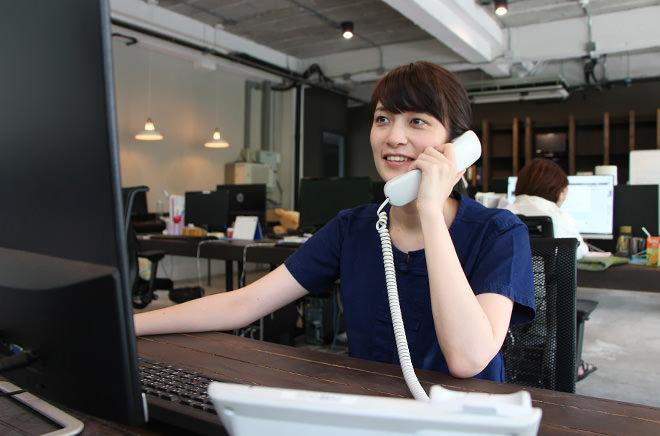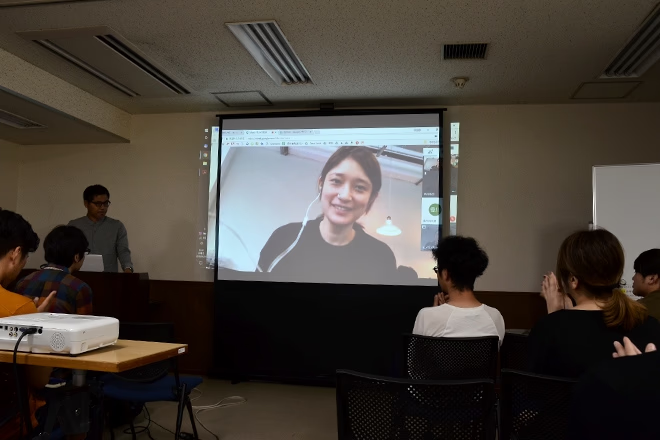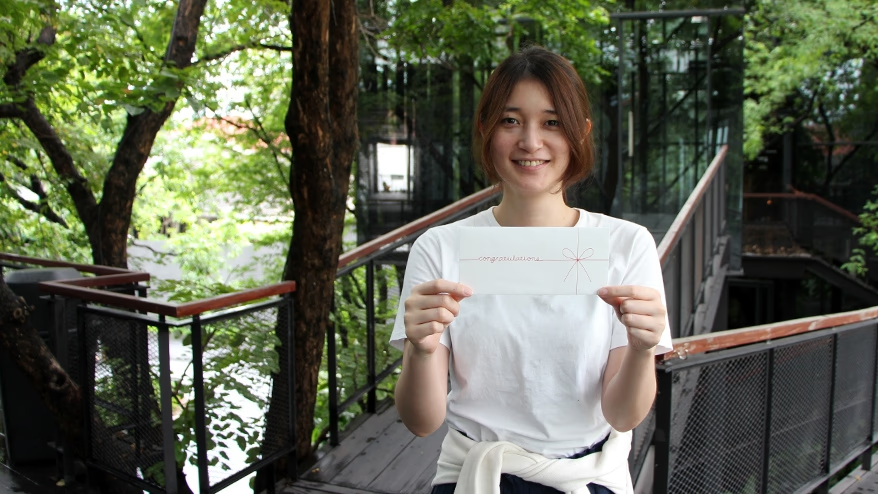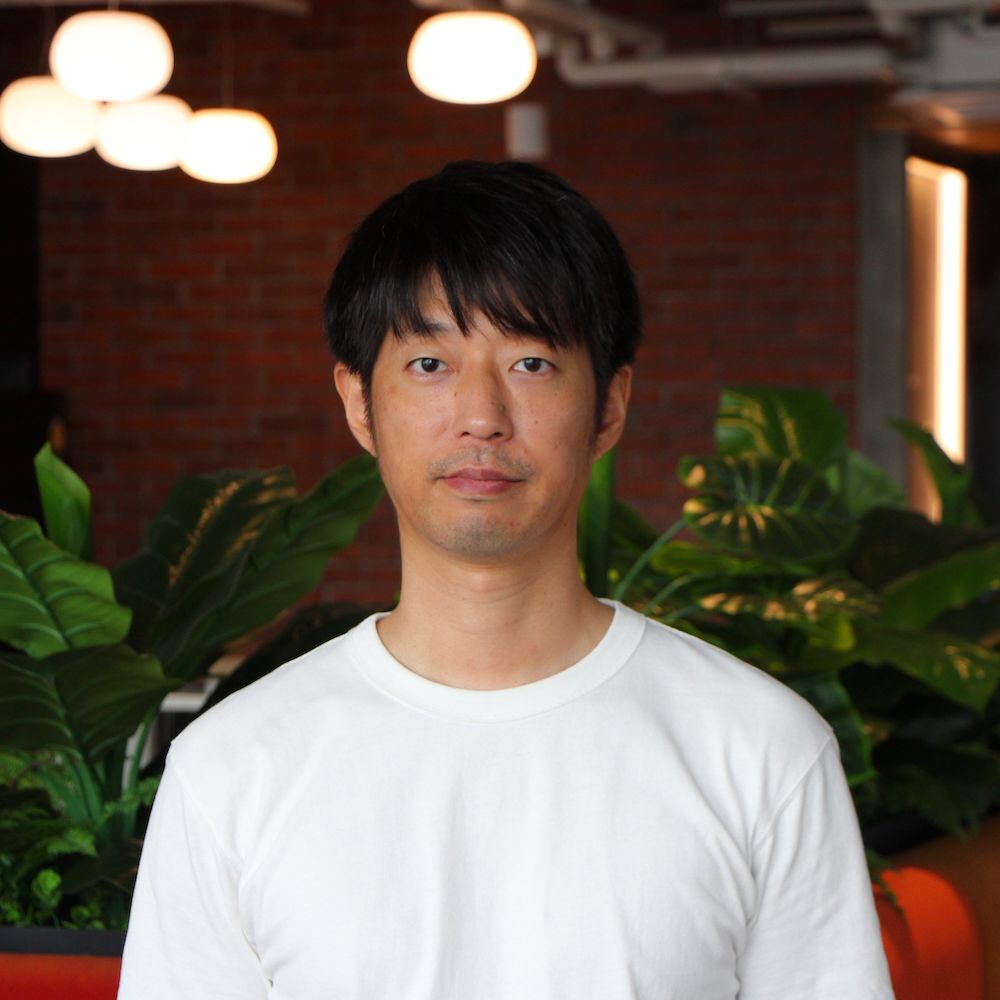モノサスタイランド(以下モノタイ)のマネージャー、宮川です。今回、日本のモノサスの月間MVPに、本来は選考対象ではなかったモノタイ所属の町山百合香が選出され、私がこの記事を書くことになりました。
町山の入社は2016年3月。全くの業界未経験で入社(=タイへ移住)してから、気が付けばもう2年3ヶ月が経ちました。すっかり一人前どころかエースと呼べるポジションにまで成長した町山。今回、別会社所属でありながら、組織の枠を越え、彼女がこのような形で評価されたことは、とても誇らしく、感慨深いものがあります。
MVP受賞理由
- 案件納品後、お客様への振り返りのインタビューで、お客様からのフィードバックがとてもよかったこと
- 代々木の部署との協働案件で、部署を超えて案件を取りまとめる力や姿勢が、各部署から高く評価されたこと
- 日タイ合同社員旅行の際のアテンドがとてもしっかりしていたこと
MVP推薦の第一声はマーケティング部部長の龍田から。クライアントからの高い評価と信頼を得ている町山の働きぶりに、モノサスとして大切にしたいサービスの根幹を見出してくれたようでした。
最近になって町山は日本のメンバーと一緒に案件を進める機会も増え、その仕事ぶりが日本でも目立つようになったのだと思います。
今回は、採用当時から現在までを振り返りながら、彼女の特長について、考えてみたいと思います。
町山はタイでどんな仕事をしているか
モノタイは2013年よりタイのバンコクにオフィスを構え、モノサスの Webサイト制作におけるコーディングの領域を多く担ってきました。町山はその中で、コーディングのディレクション業務を行なっています。
日本とタイの制作体制の大きな違いは、モノタイでは、ディレクションを日本人が行ない、コーディングはタイ人が行なうという点です。そのため、日本からの受注で日本語の Webサイトを作る上では、言語の違いがどうしても存在します。フロントエンド Web制作の曖昧で感覚的な仕様を汲み取り、通訳を介したり、直接コミュニケーションを取るなどしてタイ人コーダーに業務を依頼することは、日本人同士の分業とは違った、高いディレクションスキルが求められます。
採用時のこと
採用当時、町山は「形式自由」の Resume(履歴書/職務経歴書など)の提出要項に対し、HTML / CSSで簡単な自己紹介ページを作成して応募してきました。
採用側の意図を見事に汲み取ったのかは定かではありませんが、期待通りの実行力を見せてくれたのは、50名ほどの応募者の中でただ一人でした。
「未経験ですが、入社後はいち早く業務を覚え〜」と、入社後の意気込みを文面でアピールする方が多い中、既に行動を起こした結果の成果物に、受け身ではない姿勢を充分に感じました。
その後の面接でも、タイへ移住するということへの覚悟が感じられ、志望理由も唯一ちゃんと筋が通っていたのを覚えています。
研修期間
町山の研修は当初、神山ものさす塾の一期生として徳島県の神山町で行う職業訓練のメンバーとして行う予定でした。ところが採用広告を出すタイミングが遅れてしまったことで入塾の時期を逃してしまい、町山は代々木オフィスで2週間ほどチェック研修を受けた後、すぐに来タイとなります。
本人も希望していた神山への滞在は叶わなかったものの、当時のコーディングファクトリー部部長である伊藤がちょうど神山ものさす塾の講師を務め終え、モノタイへ数ヶ月出向することになり、町山は伊藤からマンツーマンでみっちり3ヶ月、研修を受けることになるのでした。
伊藤から働く上での心得やコーディングの基礎知識などを教わりながら、完全なる Off-JT の中で、町山は研修期間を過ごします。町山は当時の伊藤に「技術的なことの飲み込みが早いので、いっそコーダーとして育てたい」と言わしめるほどの勘の良さもありました。
伊藤先生の教育方針では、あまり答えを教えたりはしません。自ら答えにたどり着く力を養うため、考えるためのヒントや課題を与えます。伊藤から教わった事への理解を深めるため、終業後も自ら残って夜遅くまで習得に励んでいた町山。そんな研修の日々もあっという間に過ぎ、いよいよ実案件デビューを迎えます。
怒涛の案件千本ノック
実案件デビューも束の間、当時2人しかいなかったモノタイの日本人ディレクターのうちの1人が退職することになります。そこから事態は急展開。キャパオーバーの案件数が新人町山の元に舞い込むことになりました。
伊藤の研修を終えたとはいえ、案件のタイプは多岐にわたります。業務知識は実務になって初めて知ることの方が多く、右も左も分からぬまま、次々と生じる課題の解決に追われる日々。私が傍らからサポートはしながらも、案件の一つ一つは確実に町山の経験として蓄積され、自信となっていきました。
モノタイはこれまで小中規模の案件依頼が多かったのですが、この2年間に納品した案件の数は、モノサス全体を見ても町山がトップだと思います。
町山が社内で最も多くのプロジェクトを経験し、納品に導いてきた理由には、案件の規模以外に、本人のタスク処理能力の高さ、対応可能な案件タイプの多さが挙げられます。
出来るから求められる、求められてまた出来ることが増えていく。そんな循環の中で町山の強みが育まれたのかと思います。
町山の強みとは
町山はクライアントから「次回もぜひ町山さんで」と指名されるケースも多く、今回の受賞理由の一つとなったクライアントへのインタビューでも、嬉しいお言葉をいただきました。
とくに印象的だったのは、「気付いてくれる」「提案してくれる」「ちゃんとディレクションしてもらえている感覚がある」という指摘です。
発注側が気付かなかった細部の課題にも気付き、解決方法を提案してくれる。それが非常に助かっているという声をいただきました。

町山は周囲の人の感情をとても気にします。それは自然と察してしまう敏感さ故のことで、空気を読むという感覚とは少し違った、共感力のようなもの。相手が必要としていることを敏感に感じ取り、何を提供すれば良いかに気付けるのだと思います。日タイ合同の社員旅行でのアテンドでも、先を読み、周囲に気を配れる力が発揮されていたのではないでしょうか。
また、町山は課題を解決することが潜在的に好きなようです。本人も「ググるのが上手い」と自分で言っていましたが、問題点を突き止め、課題を解決し、その状況を救うことが、得意であり喜びでもあるのだと思います。
思えばモノタイも、私自身も、彼女が日々奮闘してくれていることでとても助けられています。傍から見ていて、膨大なタスクを抱えていても、大事なことを省かずにひとつひとつ確実に丁寧にやり遂げる姿には、神々しささえ覚えます。
どうか身体を壊すことのないようにと、心配しながら今夜も後ろで見守りたいと思います。
いつもありがとう。MVPおめでとう!

バンコクのオフィスからGoogleハングアウトで受賞のコメント
町山について、7月にメンバー紹介記事も控えているため、そのタイミングでより詳しく紹介したいと思います。また、町山がタイへの移住を決意した動機や、入社後一年の奮闘記は、本人の過去の記事でも書かれていますので、ぜひご一読ください。
MVP受賞コメント
MVPへ選出いただきありがとうございます。
モノサスタイランドに仲間入りさせていただいてから丸2年が経ちました。
入った当初は本当に右も左も分からず、
あとどのくらい経てば先輩たちのようになれるのだろうと不安を感じていましたが、
今こうして評価していただけたことで、少しは成長できたかなと嬉しく思います。分かることが増えると同時に、
まだこんなに知らないことがあるのかと日々感じる今日この頃ですが、
これからも自分に出来ることを少しずつ増やしていきたいと思います。これまでタイ人コーダーとのやり取りの中で、
すれ違いのないコミュニケーションをすることがどんなに難しいかを学ぶ場面が多くありました。
最近は代々木オフィスの日本人メンバーと案件で関わる機会も増えてきて、
どうしたらタイと日本の共同案件がコミュニケーションロスなく円滑に進むかを模索中です。今後もより多くの方々と関わっていけたらと思っています。
これからもどうぞよろしくお願いいたします。町山 百合香

